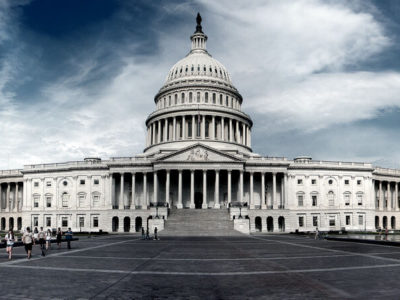If I asked you to stop right now and tell me at least two other issues Congress is dealing with right now (that doesn’t involve the Russian investigation), could you? With a new chapter of drama unfolding everyday with the Trump administration people easily look past the fact that Congress deals with lots of other issues. What is the Senate doing all day besides arguing and making back door deals?
Pay attention to these 10 hot ticket items that U.S. Congress members discuss daily.
1. Obamacare: Repeal or Replace
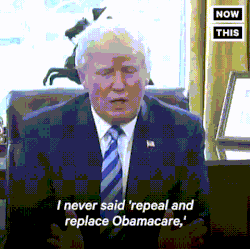
It is no secret that the congressional Republicans want to repeal the Affordable Care Act put in place by the Obama administration. Conservatives believe that the government should not force you to have insurance and dictate your insurance benefits. Liberals, on the other hand, believe the government should step in to provide health care coverage for the people that would be left without it.
According to Dr. Cicily Hampton, Senior Director of Health Science & Policy at the Society for Public Health Education, the new purposed bill could mean two things. While your health insurance would get cheaper, it wouldn’t cover certain necessities such as prescription drug coverage. “Another change that would directly affect you would be when you graduate and go out on the job market. You’d no longer be forced to buy insurance or face a penalty, but employers would no longer be required to provide insurance to workers,” said Dr. Hampton. “So there is a chance that you’ll get a job at a company that doesn’t provide health insurance.” That’ll become a huge issue once you’re too old to milk your parent’s insurance plan, if they have any themselves.
2. Tax Reform

In theory, tax reform should effectively raise revenue. However, this issue can become far more complex. “We talk about tax reform a lot but haven’t had any movement on it yet,” said University of Miami Professor of Political Science Gregory Koger. While the Republican Party has asserted a reform on several occasions, we still haven’t seen one. The reason why? Trump has proposed a long list of possibilities that law makers are trying to turn into passable legislation that’ll appease both moderates and conservatives.
The GOP has promised to pass a bill with lower rates for businesses and individuals, but who it will actually benefit? “It is anybody’s guess. Tax reform could be code for a huge tax cut for people in corporations. Another way to think about it is elimination of a large number of tax breaks for some people,” said Professor Koger. We just don’t know yet, and that’s why we need to pay attention. Like it or not, taxes affect us all. For instance, every April we begrudgingly prepare our taxes. Aside from that, taxes directly affect other issues young adults may find more pertinent, such as healthcare.
3. Marijuana
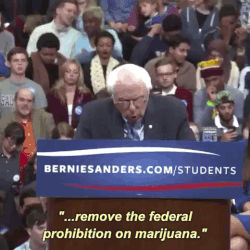
I often hear a lot of my peers talking out of their hind parts about marijuana being “legal” now. Okay, here’s the deal about that…Yes, some states have legalized it. But it’s a good idea to find out if you live in one of those states. You can look it up on various websites to see if the state legalized it recreationally versus medically or both. However the federal government still classifies marijuana as an illegal substance.
Our new attorney general, U.S. Senator Jeff Sessions of Alabama, has been known as an avid adversary of marijuana legalization. So it is very likely this battle will wage on for a while. Even if legalization does stay in place, Congress still has to worry about the issue of sales tax revenue—which would be an entirely different headache from state to state. So before you go walking around campus smoking weed, maybe check to see where Congress has gotten with it first?
4. Clean Energy

Obama put the Clean Power Plan (CPP) alongside the Paris Climate Agreement (which President Trump has not signed, putting the United States at odds with our allies) in place to help reduce man-made climate change. In response, a bipartisan group of Mayors have joined together to back a plan for cities to run solely on renewable resources. This measure will be sent to Congress in hopes of influencing legislation. Even though in Congress, Republicans and Democrats remain highly separate on how to deal with climate change, on a state level there seems to a spreading unity on a goal to generate energy through renewable resources.
So students should take advantage of their on-campus opportunities, because their voices can make a huge impact. That includes joining initiatives or creating their own to bring attention to climate change. These pivotal opportunities get the attention of your state representatives involved in issues. Who knows? You might even get a personal reply from you state’s representative.
5. Opioids
Opioid addiction has become so prevalent and persistent that the problem has spread to every state and affects almost every demographic. While at this time there is no clear “fix- it” on the table, we certainly need to quell the growing problem. In 2016 the epidemic led to a rare instance of bipartisan participation. In a signed pact between the two parties, they agreed to actively work on a solution. One idea may entail investigations into drug manufacturers suspected of over prescribing. Additionally, opioid makers rely on taxpayer-funded programs to received profits. For example, tax payer dollars that go into the healthcare plan are seeing a steady increase in opioid prescription drugs versus those of privately insured.
It’s no secret that college can be a time of experimentation in more ways than one. Each state individually has their own alarming statistics surrounding opioid overdose deaths. Collectively, as of 2015 a study found that 16 percent of college students had taken opioids. Among those involved in sports, the number rose to 22.5 percent. Unfortunately, you and your classmates cannot completely avoid the issue during college, but that doesn’t mean that you can’t ask local politicians to help minimize it as much as possible.
6. Higher Education

Pay attention, because this issue directly applies to us. According to CNBC’s breakdown of yearly college costs, tuition rises three to five percent a year. Public universities rely on tuition increases in light of cuts on state spending for higher education. Some states, such as Tennessee, Oregon and Minnesota have successfully passed legislation beginning as early as 2014 allowing for free tuition at community colleges for those who meet financial need. These legations for tuition programs are back on the ticket again this year and it’s a good idea to keep an eye on your school’s state to see how costs will affect you.
A lot of this of course boils down to your state representative. When Congressional elections come around again you can start a university initiative to back a particular candidate. Or you can organize petitions or protests for those already in Senate. This issue affects you even after your undergraduate years. If tuition costs continued to rise would you be able to continue paying for school, and how would you pay for it if you couldn’t? For some students the questions are speculative, and for others they’re all too real.
7. Immigration Reform

While the President believes he will be able to make both sides happy on an immigration policy, I don’t think anyone will disagree with me when I say it’s unlikely. TBH, you can never please everyone all the time. Trump has thus introduced several different proposals, which essentially boil down to building a wall and deporting illegals. He additionally attempted to continue restrictions on immigration from certain countries. According to Professor Koger, this has mostly played out in the form of the travel ban.
As far as illegal aliens currently in the U.S. go, no clear plan has been laid out as a “solution.” Rather, the Trump administration is changing the way current laws are enforced. “What has happened very quietly is rounding up people who are undocumented or have any sort of criminal record. They are actively kicking them out,” said Professor Koger. Certain cities, known as “sanctuary cities” are refusing to collaborate. If these sanctuary cities refuse to cooperate, they’ll find themselves cut off from federal funds.
For a college student this would affect you in areas such as increase in tuition. Many of us either come from family of immigrants or we have friends that do. Students, and concerned citizens, participate in protests and petitions to help immigrants. For example, Penn State protested the travel ban every week last semester. Taking initiatives such as these allow you to stand up for those hidden voices.
8. Will the LGBT Population Count in the Census?
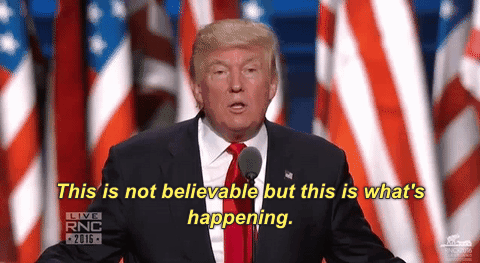
Fun fact: Congress decides on whom to include on the U.S. Census. Several federal agencies, such as Health and Human Services, Housing and Urban Development and Justice Departments, compile the questions and send a draft for Senate approval. At this point in time, the LGBT population is officially unknown in the census. More than five-dozen Democrats call for the inclusion of the LGBT community in the next census, and have sent a letter to the Trump administration in objection to its exclusion.
But according to NBC News, John Thompson, the Director of the Census Bureau, has stated there is no federal need to know that information. The Trump administration stands by the exclusion and provided no further insight as to why. Democrats argue that the information they would obtain from the census would help policymakers understand the needs of these communities. If not counted in the census their voices will go largely unheard.
For college students who consider themselves a part of the LGBT community, overlooking these kinds of issues potentially puts your future (or your friends’) in adverse circumstances. What doesn’t affect you today may affect you tomorrow.
9. Senate Intelligence Hearings
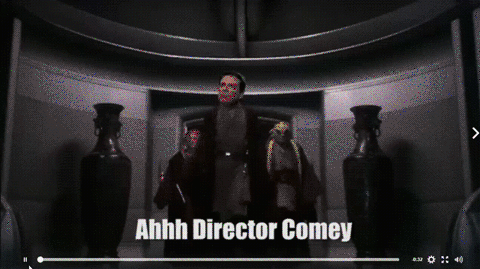
Yes, I did say there are other things to pay attention to other than the Russian investigation, but this has to make the list. Whether we’re tired of hearing about it or not, we can’t pretend like this hasn’t become the epicenter of politics all around the world. While we know that Russia did in fact infer with the 2016 Presidential elections, the hearings serve another purpose. “The hearings are trying to trace out the connection to Trump, Trump campaign and Russia,” said Professor Koger. The repercussions from the outcome of these hearings could be the difference between our President and his fellow cabinet members remaining in power or not. This possibility of a change in power can affect any number of the issues previously discussed. For example, healthcare could be reaccessed…again.
Also, consider that Congress holds two types of hearings: Those we see on TV and closed-hearings confidential to the public. It is then up to the Intelligence Committee to make the final determination, for the American people, if this election contained corruption or not. If it did, then did we really have the democratic election our Founding Fathers called for?
10. Fiscal Year Federal Budget

By October 1, 2017, Congress must submit a budget that will be the blueprint for how the government will be funded for the upcoming year. Since this budget determines what they will have the money to implement. For example, remember that wall Trump wants to build? “Well, this budget helps decide whether that’s even possible,” said Kogar.
Or how about that federal Healthcare plan that has just been rolled out? Well Congress has to decide on that prior to the new budget. “Since the Senate is using budget reconciliation for the FY17 (fiscal year 2017) budget, they only have until a new budget passes to get this done,” said Dr. Hampton. “Once they pass a budget for FY18 ahead of the September 30th deadline, their ability to do budget reconciliation for FY17 is lost.” In layman’s terms, Congress needs to figure out how they will pay for healthcare and reassess the debt limit, or else the government could shut down all together. That means work on issues like a new immigration policy or marijuana restrictions will also halt.
Let’s just take a moment to think of the gravity of a government shutdown. If the government shuts down with no federal funding in place, this could hold up any dispersing of financial aid you may have received. Or what if it shuts down with no plan in place for healthcare? If you or family member should need to go to a doctor you may have to pay out of pocket for that. Becoming educated and mindful about the issue will make things less shocking and confusing for you later.
It’s easy to get lost in the menagerie of news programs and the bickering of the party members, but we still need to step aside and remember how one issue can directly affect another. Nothing’s more irritating than people who jump on the bandwagon for a particular candidate without researching and understanding the issues on his or her platform. In other words? We need to make ourselves aware of what Congress is up to now so we can understand how these laws will affect our future.

